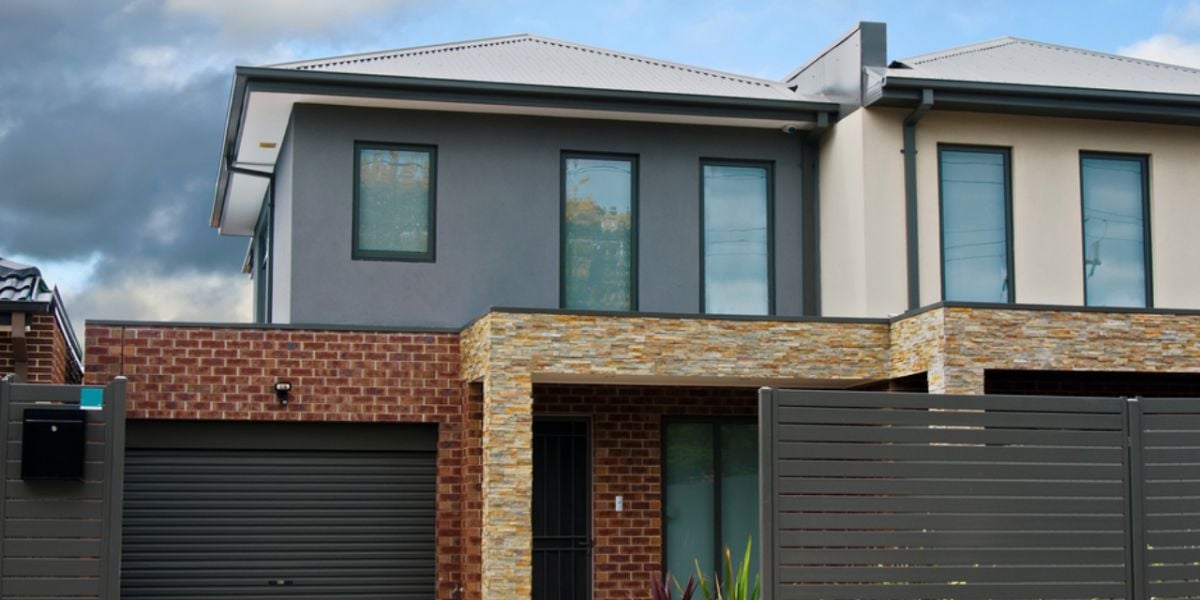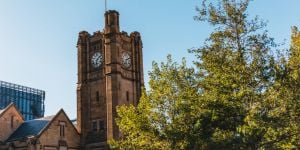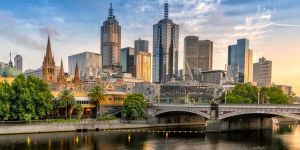
There is no denying Melbourne is an expensive city to live in. But while homes in Melbourne remain more expensive than in other parts of the country, the local property market is in recovery mode in 2025 after falling property prices in recent years. However, the cost of property in the nation's cultural capital is now predicted to accelerate to record highs, leaving the city's property market downturn well and truly behind. Here's what you need to know if you're looking to buy a house or an apartment in Melbourne.
Melbourne's property market
Previously the second most expensive place to buy property in Australia, December 2024 saw Melbourne at the fifth spot behind Sydney, Brisbane, Canberra, and Adelaide. And while most cities experienced an increase in house prices, Melbourne was the only capital to experience a decline, with property values 4.5% below their peak in March 2022. However, the start of 2025 has seen a turnaround in Melbourne's property market, which is expected to continue price growth over the coming year.
The Domain Group's latest forecast report predicts Melbourne will fully recover from its two-year downturn, with house prices set to reach record highs, forecast to increase by six percent. The median house price in Melbourne in 2025 is AUD 1,046,246 (USD 683,863), which is expected to rise to AUD 1,112,623 (USD 727,249) in 2026.
Can expats buy property in Melbourne?
To help alleviate Australia's housing crisis, the Australian Government has announced a ban on foreign purchases of established dwellings in Australia for a period of at least two years, from April 1, 2025, to March 31, 2027. If you are a foreign resident, you cannot buy an established residential dwelling in Australia, either directly in your name or through a trust relationship or business. Severe penalties can apply for breaking this law.
However, foreign residents can still purchase other types of Australian residential property, including new dwellings, vacant land, and property that is to be redeveloped upon approval from the Australian Tax Office. You will need to submit an application online to have your situation reviewed before a purchase can be made.
The types of residential property that a foreign person can buy in Australia include:
- a new or near-new dwelling;
- an established dwelling for redevelopment;
- an off-the-plan property;
- vacant residential land;
- an established dwelling for a foreign company that employs workers from Pacific Island countries and Timor-Leste and is required to provide housing for them, including those participating in the Pacific Australia Labour Mobility (PALM) scheme.
Buying property as a non-resident
In the past, temporary residents could purchase an established dwelling to live in as their primary residence in Australia, provided they obtained government approval. The property could not be rented out as an investment property, and they may have been required to sell the property once they permanently left the country. A temporary resident was considered to be an individual who held a temporary visa that allowed them to stay in Australia for a continuous period of more than 12 months, or someone in Australia on a bridging visa who had applied for permanent residency.
Types of accommodation in Melbourne
When it comes to buying property in Melbourne, there is a diverse selection of houses and apartments to choose from. Melbourne has a range of property types, such as standalone homes, semi-detached houses, such as townhouses, apartments in large complexes, and villa units, which tend to be smaller, low-rise dwellings.
Searching for property in Melbourne
Due to the restrictions in place for expats buying property in Melbourne, it is recommended that you seek professional advice to fully understand the constraints, as well as the options that are available to you. A property professional will be familiar with the local property market and will also be aware of off-market, pre-market, and off-the-plan properties. They will also be able to direct you towards the most suitable suburbs for your budget and needs.
But if you want to get a head start by researching what the property market in Melbourne has to offer, the best place to begin is online. Websites for exploring the property market in Melbourne include Realestate and Domain. Here, you can search and get a feel for house and apartment vacancies, as well as the different suburbs and their prices.
You can also search online for real estate agencies that specialize in the area you would like to buy in. Agency websites feature houses and apartments for sale, and can also provide market summaries for different Melbourne suburbs. Some of the properties listed will be available for auction, while others will be sold privately. This means that they will be open for viewing during the advertised inspection times, and interested parties can then approach the seller with an offer, which the seller will either accept or decline. A private sale can be less costly than an auction, where you will be bidding against others. QuickStats is a valuable tool for capturing a snapshot of a particular area, enabling you to understand demographics, incomes, commuting patterns, and the types of housing available in the area.
Financing your property purchase in Melbourne
When buying a house in Melbourne, you will probably need to set up a home loan through your bank or borrow money from a variety of other financial institutions. To buy a house or apartment, you will require a deposit. The minimum amount ranges from 5% to 20% of the property value, depending on the loan type and the lender.
The deposit is typically paid when you exchange signed contracts with the seller of the property. The settlement usually takes between 30 and 90 days, and the buyer and the seller agree upon the timeframe.
Be aware of the additional costs associated with buying a house, such as stamp duty, loan application fees, land title transfer fees, council rates, legal and conveyancing expenses, any necessary repairs, and the costs of relocating. If you become a permanent Australian resident over time, you will be eligible for a First Home Owner's Grant.
Tips to remember when buying property in Melbourne
Always research as much as you can before buying a property in Melbourne. Establish your budget so that you have an idea of the types of properties you can afford, and then attend inspections within that budget to see how far your pennies will get you. With interest rates constantly changing, it's always good to stick to your budget so that you don't overextend yourself. And don't just focus on your desired neighborhoods either. Consider the surrounding suburbs and remember that the further you move out from the city center, the lower the house prices will be.
We do our best to provide accurate and up to date information. However, if you have noticed any inaccuracies in this article, please let us know in the comments section below.








